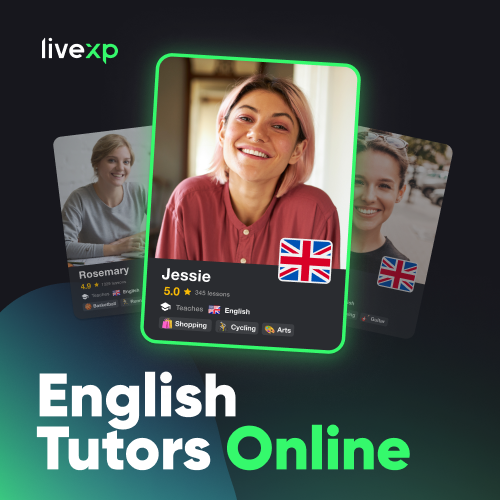CEFR

English Level B1 – Details
Table of Contents
ToggleCommunicative Objectives
Here you will find a detailed list of what you will be able to do by the end of your A1 level course.
Spoken Interaction
- I can start, maintain and close simple face-to-face conversations on topics that are familiar or of personal interest.
- I can give or seek personal opinions in an informal discussion with friends, agreeing and disagreeing politely.
- I can have simple telephone conversations with people I know.
- I can ask for and follow detailed directions.
Spoken Production
- I can give descriptions on a variety of familiar subjects related to my interests.
- I can talk in detail about my experiences, feelings, and reactions.
- I can briefly explain and justify my opinions.
- I can give a short prepared presentation on a very familiar area (e.g. “My country”) and answer clear questions.
Listening
- I can understand the main points of clear standard speech on familiar, everyday subjects, provided there is an opportunity to get repetition or clarification sometimes.
- I can understand the main points of discussion on familiar topics in everyday situations when people speak clearly, but I sometimes need help in understanding details.
- I can follow clearly spoken, straightforward short talks on familiar topics.
- I can understand simple technical information, such as operating instructions for familiar types of equipment.
Reading
- I can understand the main points in straightforward factual texts on subjects of personal or professional interest well enough to talk about them afterward.
- I can find and understand the information I need in brochures, leaflets, and other short texts relating to my interests.
- I can understand the main points in short newspaper and magazine articles about current and familiar topics.
- I can understand private letters about events, feelings, and wishes well enough to write back.
Writing
- I can write short, comprehensible connected texts on familiar subjects.
- I can write simple texts about experiences or events, for example about a trip, describing my feelings and reactions.
- I can write emails, faxes, or text messages to friends or colleagues, relating news and giving or asking for simple information.
- I can write a short formal letter asking for or giving simple information.
Strategies
- I can write short, comprehensible connected texts on familiar subjects.
- I can write simple texts about experiences or events, for example about a trip, describing my feelings and reactions.
- I can write emails, faxes, or text messages to friends or colleagues, relating news and giving or asking for simple information.
- I can write a short formal letter asking for or giving simple information.
Grammar and Vocabulary Objectives
To learn how to use English in these situations, you will need to know most of these language areas.
Grammar
- Adverbs
- Broader range of intensifiers such as too, enough
- Comparatives and superlatives
- Complex question tag
- Conditionals, 2nd and 3rd
- Connecting words expressing cause and effect, contrast, etc.
- Future continuous
- Modals – must/can’t deduction
- Modals – might, may, will, probably
- Modals – should have/might have/etc
- Modals – must/have to
- Past continuous
- Past perfect
- Past simple
- Past tense responses
- Phrasal verbs, extended
- Present perfect continuous
- Present perfect/past simple
- Reported speech (range of tenses)
- Simple passive
- Wh- questions in the past
- Will and going to, for prediction
Vocabulary
- Collocation
- Colloquial language
- Things in the town, shops and shopping
- Travel and services
Language Work
This is the type of language work you will be studying with your teacher. These phrases will be useful in the classroom and beyond.
- Last year we went to Thailand for our holidays. We visited many interesting places. I went scuba-diving while my boyfriend went on an elephant ride.
- We also tried lots of different kinds of food. We had a great time.
- He felt a little nervous about the exam.
- I’m fed up with this British food.
- I think England will win the World Cup.
- Exactly!
- Yes, I agree.
- Well, actually…
- Well not really.
- I’m sorry but I think you’re wrong.
- I see what you mean but…
- Excuse me – can I talk to you for a minute?
- Excuse me, please. Have you got a minute?
- Guess what!
- You will never believe what I saw yesterday.
- Must go – see you later.
- See you later. Take care.
- Is that clear?
- Do you follow me?
- I’m not sure I understand. Are you saying that…?
- Do you mean…?
- Sorry, to interrupt you but…
- I have a question.
- Could I interrupt here?
- Do you mind if I say something?
- Anyway,…
- By the way, there’s something else I wanted to tell you.
- What were we talking about?
- To get back to what I was saying,…
- So, as I was saying…
- Okay,…
- On the other hand, we could stay at home and watch television.
- Who did you see at the party?
- How long have you been studying English?
- Why did you get the tattoo?
- What happened then?
- He hasn’t come home yet, has he?
- They had so much fun that they forgot to check what the time was.
Source: CEFR Core Inventory British Council

Ian Tanpiuco is an ESL and virtual assistant. With a decade of experience, he has become an expert in his field. Dedicated to helping others achieve their goals, Ian works tirelessly in the classroom or as a virtual assistant.
Ian
0

